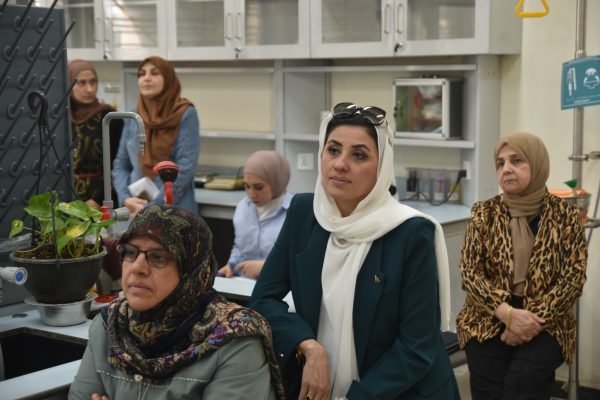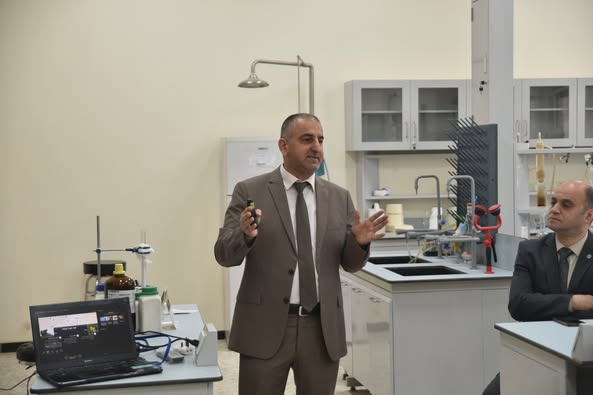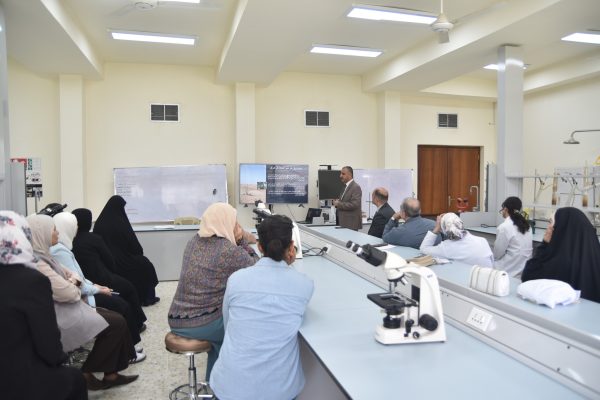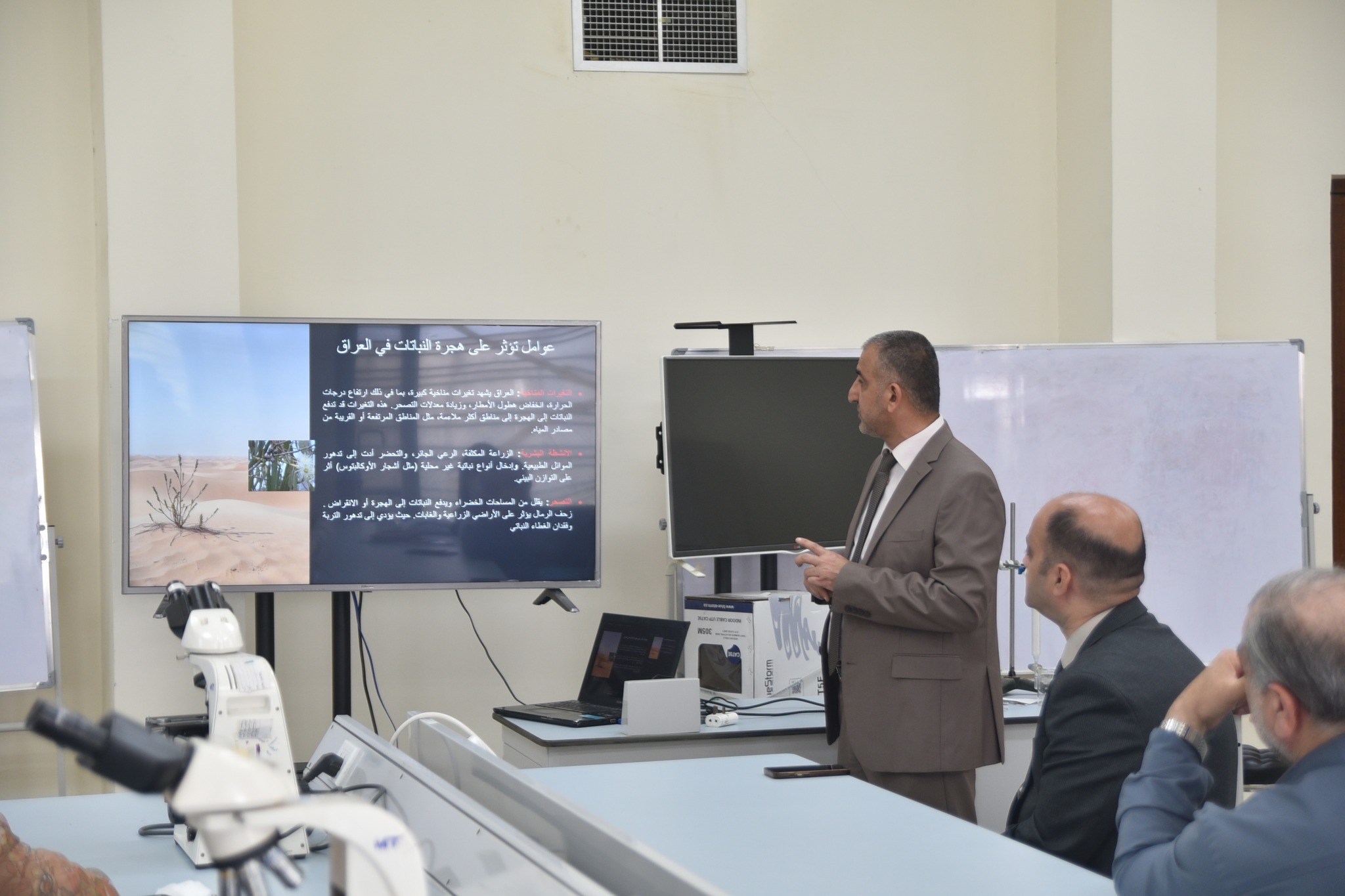Under the patronage of Professor Dr. Sameera Naji Khdim, Dean of the College of Science for Women, the Continuing Education Unit, in collaboration with the Department of Biology , organized a workshop titled “Do Plants Migrate?” presented by Dr. Mushtaq Faris Karoumi, Ms. Ghazoon Saib Saleh, and Ms. Zainab Anwar Ali.
The aim of the workshop was to enhance the understanding of students and researchers regarding the ways in which plants adapt to changing environments and the methods of their dispersal to reach more favorable conditions for their growth. The workshop highlighted how plants and their seeds move to other areas that are more suitable for growth. explaining the mechanisms of plant adaptation, such as the production of seeds that can be dispersed by wind, water, or animals to new locations.
The workshop also covered the modification of certain plant parts, such as roots and leaves, to increase their ability to retain water or reduce water loss. The topic of genetic modification in plants was also discussed, focusing on how modern biotechnological techniques are used in genetic engineering to alter the genetic code of plants, making them more capable of adapting to harsh environments, such as drought or desertification. This modification enhances the plant’s ability to resist water scarcity, withstand high temperatures, and improve productivity.
Furthermore, the workshop addressed methods for improving plants’ adaptability to harsh environmental conditions through sustainable farming techniques. These techniques include selecting plant species that are more resistant to climate changes or genetically modifying them to meet the needs of future agricultural practices.
The workshop concluded by emphasizing the importance of ongoing scientific research in this field and expanding collaboration between scientists and farmers to develop innovative solutions to environmental challenges. Participants were also encouraged to engage with these issues and develop new scientific ideas to support agricultural sustainability and environmental protection.




